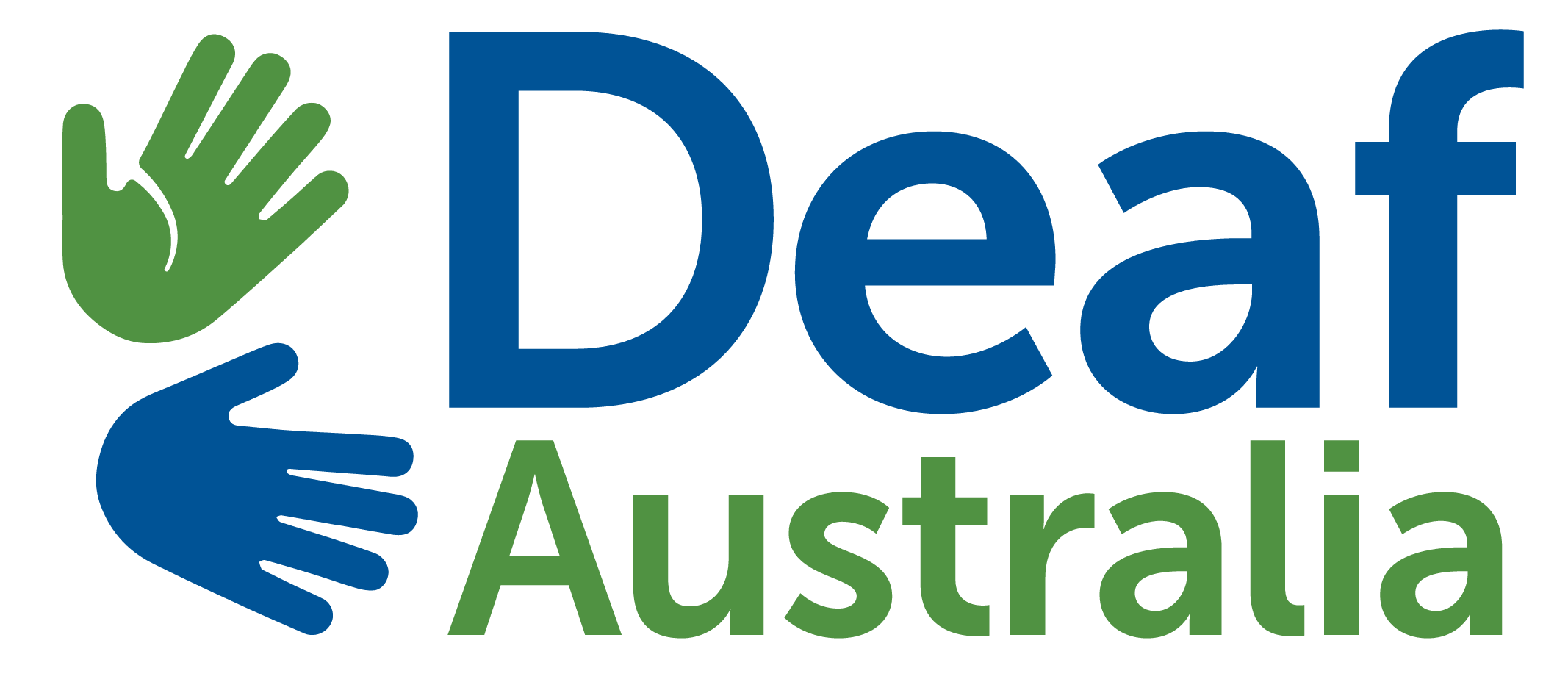No products in the cart.
Covid-19 Updates (COVIDSafe)

Deaf Australia wishes to say thank you for helping to flatten the Covid-19 in the last few weeks. We are looking forward to easing the restrictions as there are fewer Covid-19 cases that are emerging.
We wish to remind you that there is potential ‘2nd wave’ of Covid-19 and for all of us to maintain our social distance until vaccination become available. Recent work into vaccination are promising and they need to go through steps to ensure that the vaccination is safe for people.
Deaf Australia encourage members of the Deaf community to download ‘COVIDSafe’ App that will help tracking other people or to yourself should you get in touch with someone who have COVID.
It is also important that having the App does not mean you are safe; it means it offers you and the community with extra precautions to stem down the Covid-19 and to assist Health officers to quickly contact the others to control the Covid-19.
Some people are worried about privacy. It is important to know that the App only have your name, your age range and post code. Government do not have other details. All activities are stored in your phone and is stored for 21 days. After 21st day, your activities will be deleted.
If and when you have Covid-19, the health official will ask you to upload your information from COVID-19. They will use this information to track your contacts in the 21 days to make to minimise the spread.
We need your help to flatten the Covid-19. To download the App, you can go to App Store for Android and Apple. It is free.
For more information about COVIDSafe, please visit this website: https://www.health.gov.au/resources/apps-and-tools/covidsafe-app
Easter 2020 – Updates
Easter 2020 – Updates
Deaf Australia submitted ‘Issues and Challenge with Telehealth Service and Medical Services for Auslan users during Coronavirus (COVID-19) to the Advisory Committee formed by Morrison Government focusing on provision of medical supports for People with Disability. You can find this document here.
The document recommends the following:
- That the Government provide an instructional video in Auslan describing to deaf community how to use a Telehealth services, showing examples of different technologies (tablet, iPad, smartphone);
- That the Government fund deaf people through their NDIS or My Aged Care and individuals not eligible for either programs to cover their out-of-pocket costs for required use of video interpreting services;
- That the Government enter an agreement with reputable interpreting agencies to provide interpreting services for the telehealth service; whereby the agencies shall:
- Be listed as primary Telehealth Interpreting Services;
- Ensure that interpreters are appropriately qualified for these bookings; and
- Be compensated for the service rendered.
- That the COVID-19 National Health Plan (factsheet) to contain listings of agreed interpreting services available for Deaf people to make informed choices of which agency to use for their Telehealth appointment;
- In the case where a deaf person is required to be hospitalised, the hospital is responsible to source an interpreter through their current arrangement, however, interpreters must be provided with appropriate protection gear when required;
- If the hospital is unable to bring an interpreter onsite, then they should use a video-enabled tablet to connect with the interpreter while providing care to the deaf patient; and
- The Department of Health to explore enhancing its remote hospital service to allow 3-way video-connections so that doctors can provide support remotely through remote interpreters with a deaf person in a medical service.
We also discussed with Department of Social Services the following topics:
- Telehealth (as above)
- Deaf children studying at home
- Seniors requiring to stay at home with little or no communication supports
We also met with World Federation of the Deaf and is joined by New Zealand and Fiji to discuss the following topics:
- Interpreter on TV
- Deaf children’s education (study at home)
- Access to medical services and
- Use of technology and devices to enable access to essential services.
World Federation of the Deaf advised that the upcoming World Federation of the Deaf International Conference held in Thailand (2021) has not been changed but will monitor the situation, as with World Federation of the Deaf Congress in South Korea in 2023.
Thank you to deaf organisations and ASLIA for contribution to the work that Deaf Australia does.
Keep safe, stay well during the Easter Weekend.
Open Letter to the National Cabinet
We are a diverse range of organisations from across Australia, representing the interests of people with disability, their families, carers and support persons. Collectively, we have significant, direct and growing knowledge of the impact of Coronavirus (COVID19) on people with disability in Australia.
Australians with disability represent some of the most excluded of all Australians in relation to the impacts of Coronavirus. Our needs remain largely forgotten as evidenced by the fact that people with disability are rarely if ever, mentioned in any press conference, media release or government conversation about Coronavirus. The national discourse relating to Coronavirus is inherently ableist – preferencing able-bodied people as the norm. This ableist discourse is resulting in the exclusion of people with disability in efforts to prevent the spread of and address, the impact of the Coronavirus.
We are deeply concerned by the lack of specific and targeted measures from Australian Governments to proactively protect and support people with disability, their families, carers and support persons from the impact of COVID19.
We call on all Australian Governments to take the following URGENT actions to protect the lives of Australians with disability in the context of COVID19:
- Guarantee continuity of supports for all people with disability
- Expand criteria for COVID19 testing to include people with disability and their support persons.
- Urgently improve information and communications to be inclusive of all people with disability.
- Take measures to remove the barriers to adequate healthcare for people with disability.
- Include recipients of the Disability Support Pension (DSP) in the Coronavirus Supplement of $550 per fortnight.
- Urgently define what constitutes an ‘essential service’ for people with disability.
- Ensure effective measures are in place to recognise and respond to violence, abuse, exploitation and neglect of people with disability.
- Prevent discrimination of students with disability in the provision of education.
- Ensure the human rights of people with disability in congregate and other settings are upheld.
- Adequately resource Disabled Peoples Organisations (DPOs) and Disability Representative Organisations (DROs) to enable support of, and advocacy for, people with disability.
To view the full Open Letter (Easy Read)
Supporting Disability Organisations
First Peoples Disability Network
Women with Disabilities Australia
People with Disability Australia
National Ethnic Disability Alliance
Children and Young People with Disability Australia
Australian Federation of Disability Organisations
Disability Advocacy Network Australia
Deaf Australia
Autism Aspergers Advocacy Australia
Deafblind Australia
Deafness Forum of Australia
Brain Injury Australia
Inclusion Australia
Blind Citizens Australia
Down Syndrome Australia
Physical Disability Australia
Every Australian Counts
Disability Resources Centre Advocacy
Ideas
Disability Justice Australia
Enhanced Lifestyles
National Mental Health Consumer and Carer Forum
Imagine More
Advocacy Western Australia
Midland Information Debt and Legal Advocacy Service
Melbourne East Disability Advocacy
Queensland Advocacy Incorporated
Family Advocacy
Grampians Disability Advocacy
Syndromes Without A Name
Advocacy Tasmania
Southwest Advocacy Association
Victorian Rural Advocacy Network
Assert 4 All
Colac Otway Region Advocacy Service
Disability Information and Advocacy Service
Gipplsland Disability Advocacy
Community Resource Unit
AED Legal Centre
ANTaR
Centre of Research Excellence in Disability and Health
People with Disabilities Western Australia
Association for Children with Disability Tasmania
Association for Children with a Disability Victoria
All Means All
Queensland Collective for Inclusive Education
Southern Disability Advocacy
Rights Information and Advocacy Centre
Regional Disability Advocacy Service
Youth Disability Advocacy Service
National Aboriginal and Torres Strait Islander Legal Services
Spinal Cord Injuries Australia
Barwon Disability Resource Council
North East Citizen Advocacy
Julia Farr Youth
Leadership Plus
VALID
Women with Disabilities Victoria
Citizens Advocacy Perth West
Speakout Advocacy
Developmental Disability WA
Women with Disabilities ACT
Council for Intellectual Disability
Citizen Advocacy Sunbury
South Australian Council on Intellectual Disability
Parent to Parent Queensland
People with Disabilities ACT
Aspergers Victoria
Disability Advocacy and Complaints Service of South Australia
Disability Advocacy Victoria


